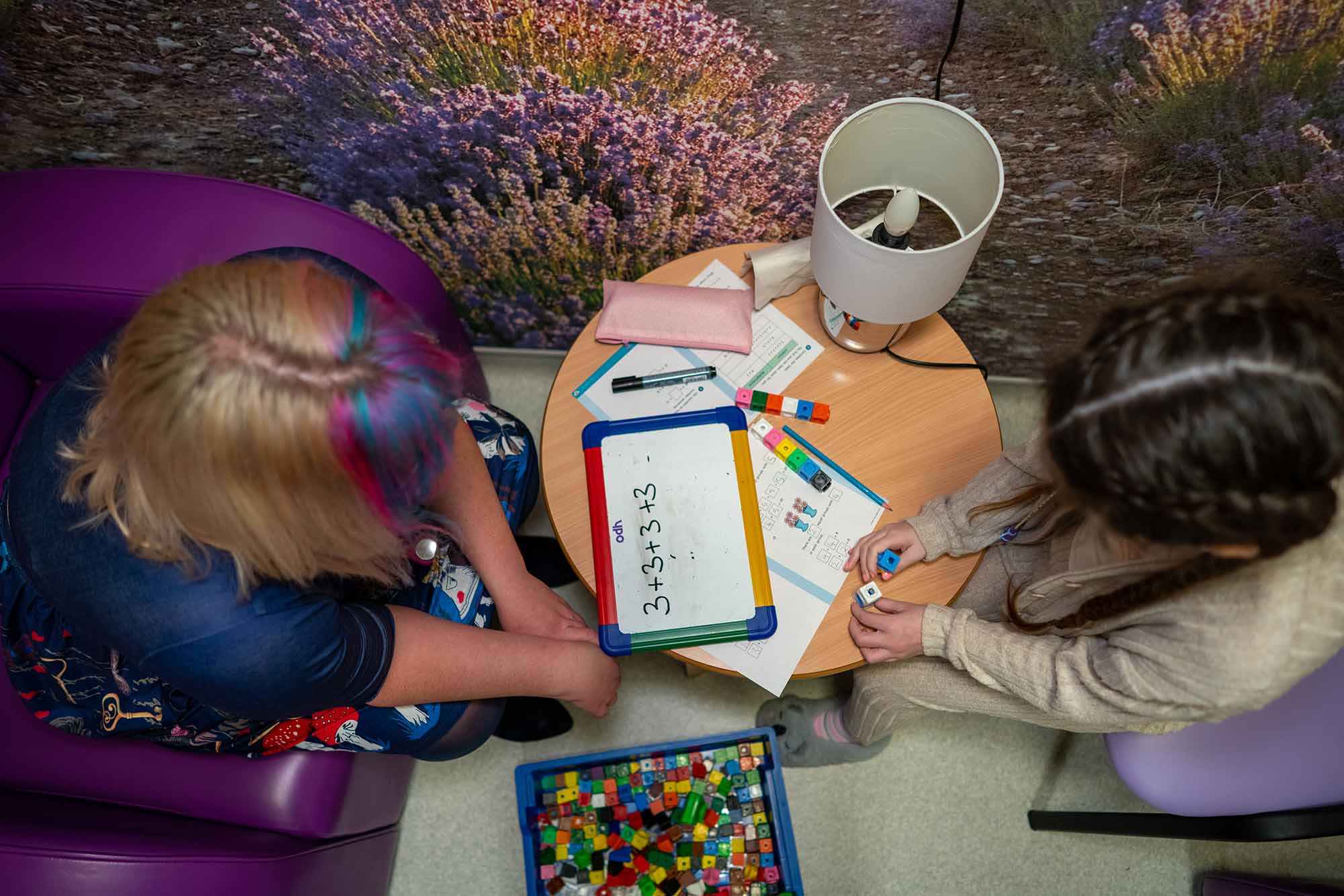“You’re a hospital teacher? What’s that?”
It’s a question I’ve been asked countless times at gatherings, meals, or polite conversations on a train. I have taught English at Manchester Hospital School for over a year and I work across a number of health settings. Our role as teachers at Manchester Hospital School involves being knowledgeable, creative and flexible to enable us to teach children who are unable to attend their usual school due to poor physical or mental health.
“A Day in the Life” of a hospital school teacher is fast-paced, varied and never completely the same. We teach all the same things that you would see in a traditional school setting – novels, plays, Shakespeare, creative writing, and all the exam texts for GCSE students!

In the mornings I teach young people who are inpatients in a mental health inpatient unit; we know each other really well. We’ve invented songs about adjectives, decorated our doors like book covers, completed a Genre Escape Room, and still sat exams.
In the afternoons, I teach on the wards at Royal Manchester Children’s Hospital. If you’ve been there, you’ve likely seen teachers whizzing around the wards with trolleys stacked with books, microscopes, ball games, paints, VR headsets, and much more. We usually teach young people in their beds, adapting our lessons to suit what the student is doing at their usual school, or any areas of their learning they struggle with. It’s important to be patient and sensitive; the young people and families have a lot going on. School can often be a ‘slice of normal’ in their day. We also contact the students’ schools, speaking to them directly about what the young people need and what they are learning about. It’s helpful for the young people to feel as much on the same page as their peers as they can, so it’s a smoother journey for them when they go back to school.
I’d say to be a good hospital school teacher, you need to be flexible, caring, and be able to think on your feet. It’s helpful to build relationships with families, nurses, doctors, and the play team who do such important work on the wards. For example, we work with ward staff to help run our morning ‘enrichment’ clubs, for example STEM Club, Pom Pom Making, Eco-Club and Board Games club. All of our teachers are qualified teachers and have the same formal training at University as the teachers in usual schools. We have additional training which is related to the needs of the pupils we have in our school to ensure we help them to progress and continue to be learners during their time with us
As part of our wonderful team, we have teachers whose specialism is teaching students with additional learning needs, or profound multiple learning difficulties. They work with children and young people who have complex learning difficulties in addition to a physical disability and / or sensory impairment, to help them reach their potential in their learning. You might see them using songs as part of the lesson routine, light and sensory toys, and storytelling. The young people are encouraged to explore the resources, use all parts of their bodies to communicate, and make choices.
We love to laugh. A bit of banter goes a long way! On World Book Day we transformed into hordes of Harry Potter characters, sweeping the wards with free books to give out, and there are often games and challenges going on, like the Portico Art of the Book Awards, or a PE hospital-wide Basketball Challenge. One of my favourite afternoons last year was when we brought a ‘Summer Fete’ to the wards!
It’s a fascinating job, a hard job, a surprising job. Most people don’t know teachers exist in hospitals until they meet one of us. I would recommend this job to anyone, and I’m happy we’re here to support young people and families when sometimes their worlds have been turned upside down.
By Rachael Jackson, Teacher






